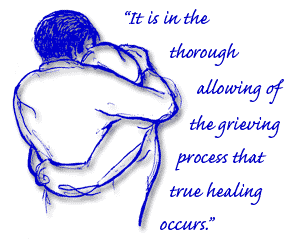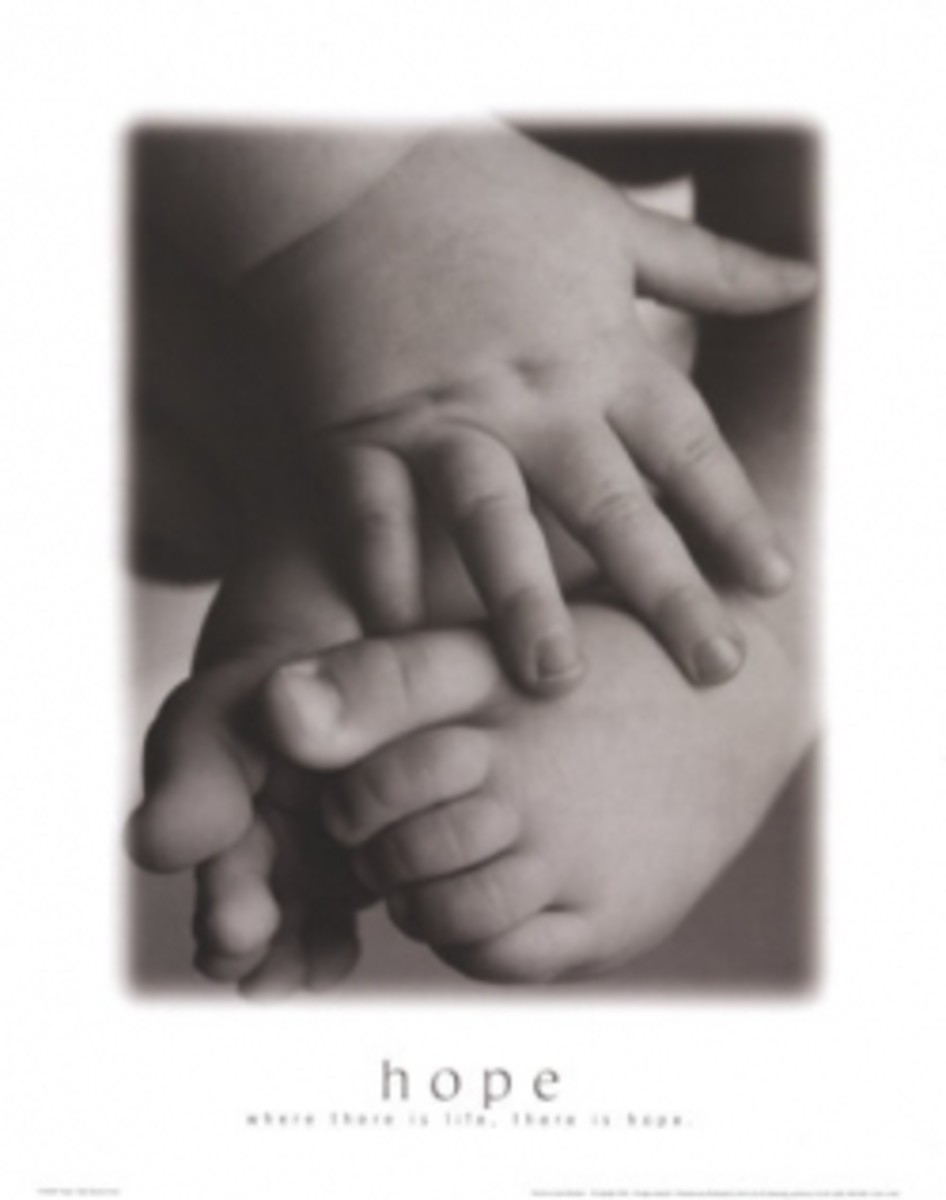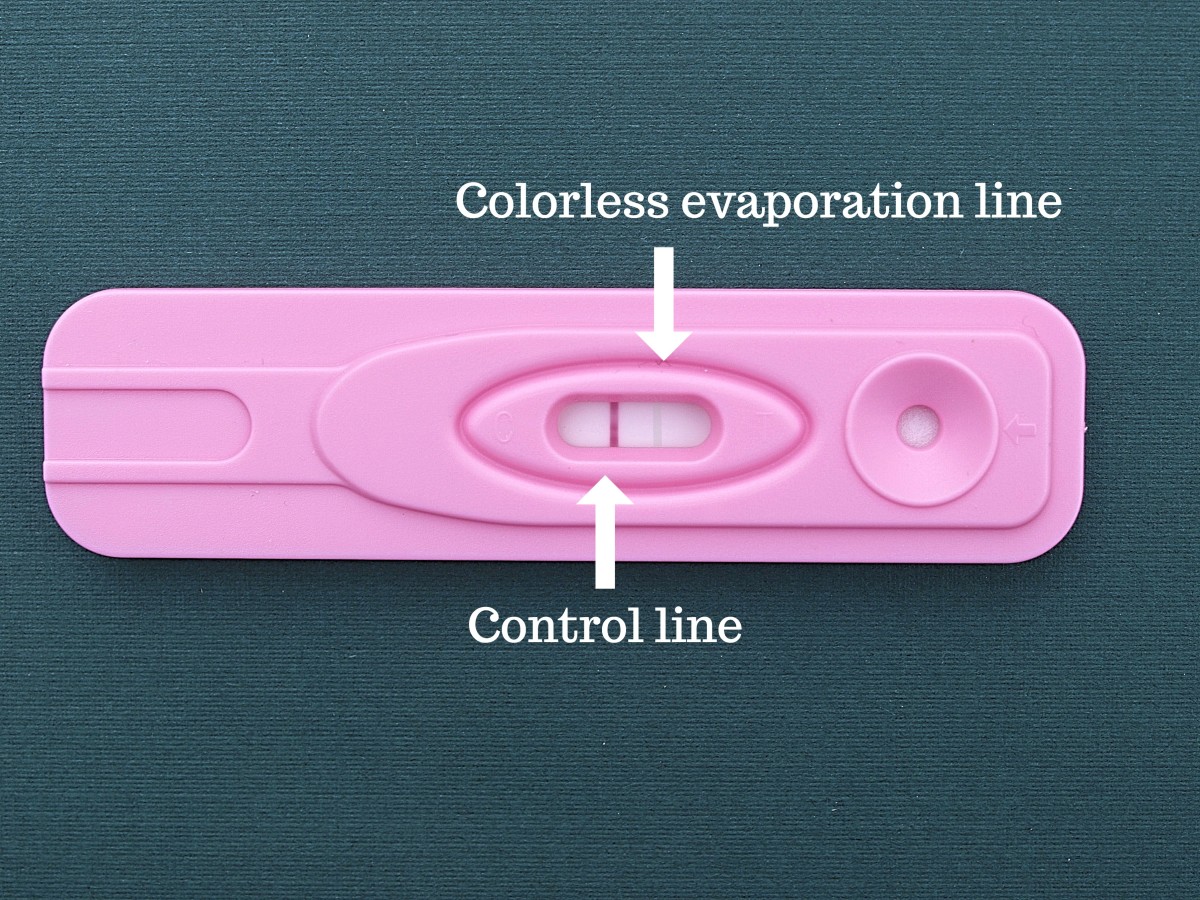- HubPages»
- Health»
- Women's Health»
- Pregnancy
Miscarriage and Stillbirth
It is normal for a woman to feel excited and nervous when she is pregnant.
Even women who have had children before feel anxious when a new pregnancy is confirmed.
They know that they are in a life changing condition. This new baby is going to change things forever.
A baby is not like a pet cat or a pet dog that is loved by all the family and sadly missed when gone; a baby is something you will give your heart and soul to; another person you will love like no other, who you would lay your life down for.
You didn’t know you would feel like that when you first began to suspect your might be pregnant.
You may have thought something like – “ Oh my GOODNESS, am I pregnant?” while you checked your symptoms off against the information you either already knew, or from that book you borrowed from the library, or in a very modern sense, you went online and Googled.
Coping with Miscarriage
Maybe you told your partner. Maybe you told your friends.
But one day, you started bleeding, then passed some tissue-like substance and the baby was no more.
Or maybe you started bleeding and got admitted to hospital when the bleeding became a torrent and wouldn’t stop, until they rushed you to theatre to do an emergency procedure to stop the bleeding, and hooked you up with blood transfusions for hours afterwards.
Miscarriage, or to use the technical name it, spontaneous abortion, is surprisingly common.
It is generally reckoned that as many as 1: 4 pregnancies end in miscarriage – many of them unnoticed because they happened BEFORE your period was due.
It is a sad time for you as the mother, but you will get over it and go on to have healthy children in most cases.
Mother Nature has a way of getting rid of faulty foetuses, and this is one way, unpleasant though it is.
The foetus itself may have been perfect, but its life supply, the placenta, may have gone wrong in some way.
Again, this has nothing to do with you as a mother. The placenta was always part and parcel of the genetic code of that egg.
Some women go on to have repeat miscarriages, but then generally there is something wrong with the physical set-up of that woman.
She may have a weakened cervix, or something else that may make the carrying of a child to term almost impossible.
See also: ectopic pregnancies and molar pregnancies.
Any woman who suffers repeat miscarriages should have close medical supervision in hospital until she is able to retain her pregnancy and give birth to a healthy child.

Stillbirth
Occasionally, however, a woman may have a healthy pregnancy right through until days before she is due to give birth, and suddenly she becomes aware that she hasn’t felt her baby kick for a while.
She will have to make a visit to hospital so that the experts can check for a heartbeat, because sometimes babies just get stuck in a position where they can’t move and are perfectly all right.
In the worst case scenario, she will learn that her baby has died.
This is absolutely tragic for the mother and the father, as well as extended family members who have no doubt bonded a little with the unborn baby by feelings its kicks.
It is when a baby’s kicks start to be felt at around 17 weeks gestation that the mother really starts to bond with it herself.
Now she has a real baby there, even though she may have seen it on a hospital monitor, feeling it is the final proof of its existence, and from then on most mothers fall deeply in love.
That is partly why the lack of kicks get noticed by her so quickly.
Unborn babies sleep too, but not for long. A few short hours of immobility is enough to tell her something could be wrong.
I can only imagine what she must feel when the doctor gently tells her that her baby has died.
I know women this has happened to, but it never happened to me, and we can’t really say we know what someone else feels under conditions we can only imagine in our nightmares.
Grieving for a lost baby
Her baby is dead AND she now has to deliver it.
Any pregnancy that has progressed beyond 20 weeks or so results in a baby that has to be delivered rather than a quick trip to theatre where they can do a D & C (dilatation and curettage)and scrape the womb’s contents out.
As if all that that wasn’t hard enough, by law in the UK she then has to register the death of her child, if it was more than 24 weeks gestation.
Studies have shown that it is beneficial to the mother if she is allowed to hold her dead baby after birth.
This way, she has a face to say goodbye to. It is a tragic loss for her, and one she will never fully recover from.
She may not have known that child, never heard it cry, nor changed its diaper, but it is still her child and it possesses her heart.
She may not want to see the baby at first, but it can be safely kept in the hospital mortuary until she has at least slept on her decision.
She will be exhausted after giving birth, like any new mother, but without the joy of a newborn to give her the energy most mums find they have.
It is good practice for the hospital to take a footprint of the baby as something for her to hold on to help see her through the dark days that lie ahead of her, or perhaps even a clip of hair, if the baby was born with any.
The mother will thank them for doing so at a later date.
She will have to arrange a funeral for her baby, and this is where hospital counsellors could be of their greatest help and assistance, by pointing the grieving mother in the right direction to make arrangements.
Chances are she has never had to do anything like this in her life before.
Mothers need support when they lose an unborn baby, just the same as they need support if they lost a child later.
It is one of the most tragic things that can happen to a parent.









